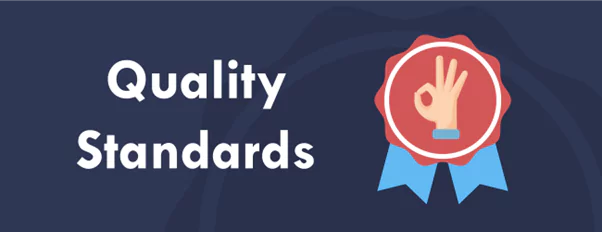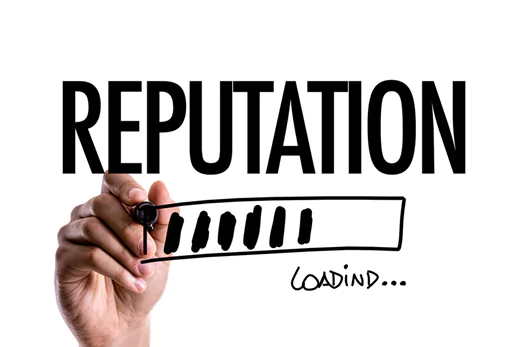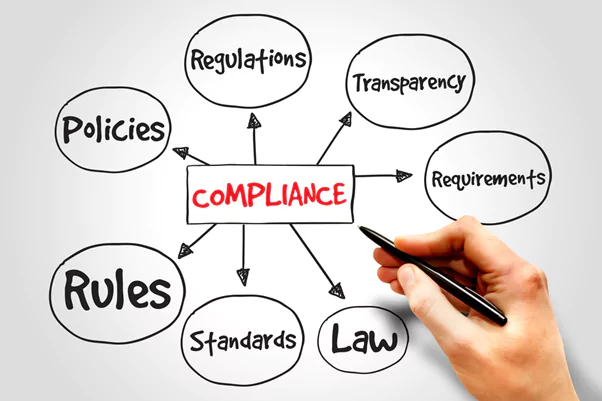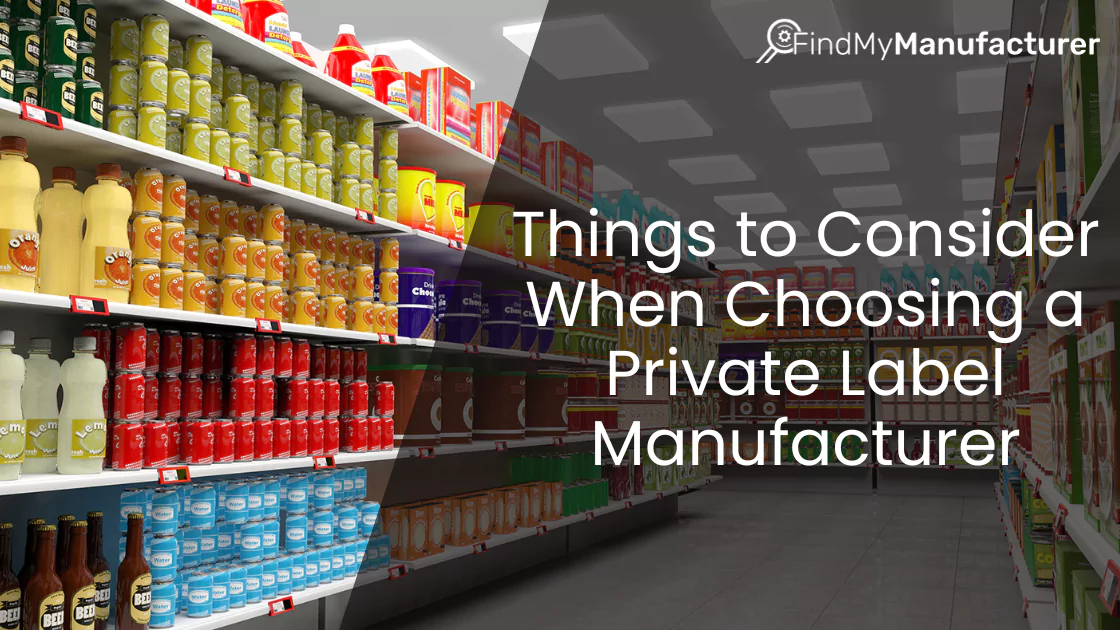Crafting a remarkable product is the linchpin to achieving success in today’s competitive retail landscape. Private label products have surged in popularity as businesses endeavor to set themselves apart and carve out a distinctive brand identity. Central to this endeavor is the pivotal task of selecting the right private label manufacturer, a decision that profoundly influences not only product quality and cost-effectiveness but also the overall triumph of the brand in the market. In this article, we will delve into the critical factors essential for consideration when choosing a private label manufacturer, emphasizing that the creation of an exceptional product is the cornerstone of a prosperous and mutually rewarding partnership.
5 Things To Consider When Choosing a Best Private Label Manufacturer
Quality Standards

Quality is paramount when choosing a private label manufacturer, serving as the cornerstone of product excellence and customer satisfaction. Overall, without a high-quality product, customers won’t be making repeat purchases. Begin the evaluation by scrutinizing the manufacturer’s commitment to quality through an examination of their certifications. Reputable manufacturers often hold industry-recognized certifications that attest to their adherence to rigorous standards. Certifications such as ISO (International Organization for Standardization) and GMP (Good Manufacturing Practices) showcase a commitment to quality management systems, ensuring that the manufacturer follows established protocols and processes throughout production.
Furthermore, a detailed assessment of the manufacturer’s production processes is important. Understanding how they source raw materials, execute manufacturing stages, and conduct quality checks provides insights into the overall product integrity. Effective quality control measures should be in place at various stages of production to identify and rectify any deviations from established standards. Look for manufacturers who prioritize continuous improvement and invest in advanced technologies to enhance the precision and consistency of their processes. Compliance with industry standards and regulations specific to your product category is non-negotiable, as it ensures that your private label products meet the necessary safety and quality benchmarks, fostering trust among consumers and minimizing the risk of legal complications.
Experience and Expertise

Experience and expertise stand as indispensable pillars when it comes to selecting a private label manufacturer. The manufacturer’s historical performance and familiarity with the nuances of producing specific types of products can significantly impact the success of your private-label venture. A manufacturer with a wealth of experience in manufacturing products similar to your intended offerings is likely to bring a depth of knowledge and insight into the production process, helping to navigate potential challenges more effectively.
Moreover, an experienced manufacturer has likely refined their processes over time, optimizing efficiency and minimizing errors. Their ability to troubleshoot issues and adapt to evolving market trends is a testament to their resilience and commitment to delivering high-quality products. Assessing the manufacturer’s track record becomes a crucial step in ensuring that they not only have the technical know-how but also a proven ability to consistently meet or exceed quality standards.
Expertise extends beyond technical proficiency; it encompasses a nuanced understanding of your industry and its unique requirements. A manufacturer well-versed in your market segment is better equipped to address specific challenges and contribute valuable insights to the product development and manufacturing processes. Their familiarity with industry trends, consumer preferences, and regulatory standards ensures that your private label products are not only well-crafted but also positioned strategically in the market.
Production Capacity

Production capacity plays a pivotal role in the selection of a private label manufacturer, and its significance extends beyond meeting current demands—it involves the manufacturer’s ability to scale in tandem with your business’s growth. Before forging a partnership, it is imperative to evaluate the manufacturer’s production capabilities to ensure they can handle the anticipated volume of your private label products. A manufacturer with ample production capacity is better positioned to accommodate larger orders, meet tight deadlines, and adapt to fluctuations in demand, thereby contributing to the agility and scalability of your business.
The dynamic nature of the market requires businesses to be responsive to shifts in consumer demand. A private label manufacturer capable of scaling operations efficiently ensures that your brand can capitalize on growth opportunities without encountering production bottlenecks. Assess the manufacturer’s lead times, turnaround times, and production scalability to gauge their responsiveness to your evolving needs. This adaptability is particularly crucial in the fast-paced retail landscape, where being able to seize market trends promptly can be a competitive advantage.
Furthermore, a manufacturer’s commitment to investing in technology and equipment is indicative of their readiness to scale production. Up-to-date machinery not only enhances efficiency but also speaks to a manufacturer’s dedication to staying competitive in the industry. Additionally, inquire about the manufacturer’s approach to resource management and how they handle peak production periods. A reliable manufacturer should have strategies in place to manage increased demand without compromising on product quality.
Read our latest blog: Private Label vs Contract Manufacturing
Cost Structure

The cost structure of a private label manufacturer is a pivotal element in the decision-making process, as it directly influences the financial viability and profitability of your private label venture. While cost is undeniably a crucial factor, it is equally important to recognize that it should not be the sole determinant in selecting a manufacturer. Striking the right balance between affordability and product excellence is key to ensuring a successful and sustainable partnership.
When evaluating the cost structure, it’s imperative to go beyond the surface and request detailed quotes from prospective manufacturers. These quotes should provide a comprehensive breakdown of costs, encompassing various elements such as raw materials, labor, production processes, packaging, and any additional fees. A transparent and detailed cost breakdown allows you to gain a thorough understanding of where the expenditures lie and facilitates a more accurate comparison between different manufacturers.
Moreover, consider the overall value proposition offered by each manufacturer. A lower upfront cost may seem enticing, but it’s essential to weigh this against the quality of the manufacturer’s work. Request samples of their previous projects or, if possible, visit their facilities to assess the production processes firsthand. This hands-on approach enables you to evaluate the quality of materials used, the precision of manufacturing techniques, and the overall attention to detail.
While cost considerations are important, prioritizing quality is crucial for the long-term success of your private label brand. Consumers associate value with product quality, and compromising on this aspect may lead to dissatisfaction and damage to your brand’s reputation. Assessing the cost structure in conjunction with the manufacturer’s commitment to quality ensures that you are not sacrificing product excellence for short-term cost savings.
Flexibility and Customization

Flexibility and customization are pivotal considerations when selecting a private label manufacturer, as they directly influence your brand’s ability to stand out in a crowded market. The capacity of a manufacturer to offer tailored solutions and accommodate unique product specifications is crucial for creating a distinct and memorable brand identity.
First and foremost, a flexible private label manufacturer should be willing and able to adapt to your brand’s specific requirements. This includes the flexibility to adjust production volumes, packaging, and even formulations to align with your brand’s vision. A manufacturer that understands the importance of tailoring products to your brand’s unique value proposition is more likely to contribute to the creation of a truly differentiated product.
Customization is equally essential in the context of product development. A manufacturer that can collaborate with you in designing and refining your private label products ensures that your offerings are not only high-quality but also align seamlessly with your brand identity. Whether it’s incorporating specific features, adjusting formulations, or designing packaging that reflects your brand aesthetic, customization allows your private label products to stand out on the shelves and resonate with your target audience.
Moreover, a flexible manufacturer is better equipped to respond to market trends and consumer preferences. This adaptability enables your brand to stay ahead of the curve by introducing innovative products or responding quickly to shifts in demand. This responsiveness is a valuable asset in the fast-paced retail environment, where agility and the ability to meet changing consumer expectations can significantly impact your brand’s success.
Reputation and References

Evaluating the reputation and seeking references for a potential private label manufacturer is a critical step in the selection process, as it provides valuable insights into the manufacturer’s reliability, performance, and compatibility with your brand. A manufacturer’s reputation is often reflective of its track record in delivering quality products and maintaining a high standard of professionalism throughout the production process.
Start by researching the manufacturer’s reputation within the industry. Look for testimonials, reviews, and any available industry reports that shed light on their performance. A manufacturer with a positive reputation is more likely to be a trustworthy partner committed to meeting or exceeding expectations. Conversely, red flags such as a history of quality issues, delayed deliveries, or poor communication should be carefully considered before entering into a partnership.
Seeking references from the manufacturer is another crucial aspect of due diligence. Directly contacting past or current clients allows you to gain firsthand insights into their experiences with the manufacturer. Inquire about the manufacturer’s communication practices, adherence to timelines, and the overall satisfaction of the clients with the end products. A reputable manufacturer should have no qualms about providing references and showcasing successful collaborations.
Moreover, it’s essential to ensure that the manufacturer has relevant experience in your specific product category. Experience in producing similar products indicates a familiarity with the unique challenges, quality standards, and regulatory requirements associated with your industry. A manufacturer with a proven track record in your product category is better positioned to navigate the intricacies of production and deliver products that align with industry expectations.
Legal and Compliance Considerations

Legal and compliance considerations are paramount when selecting a private label manufacturer, forming the bedrock for a successful and sustainable partnership. Ensuring that the manufacturer operates within the bounds of applicable laws and regulations is not only a legal imperative but also a strategic decision that safeguards your brand’s reputation and minimizes the risk of future complications.
Product safety standards constitute a critical aspect of legal compliance. A reputable private label manufacturer must adhere to stringent safety regulations relevant to your product category. Complying with international standards and industry-specific guidelines is non-negotiable, as it not only ensures the safety of your customers but also protects your brand from potential liability and reputational damage associated with substandard or unsafe products.
Labeling regulations are another crucial facet of legal considerations. Accurate and transparent product labeling is essential for compliance with regional, national, and international standards. Choosing a manufacturer with a thorough understanding of these regulations and a demonstrated track record of adherence helps avoid legal entanglements, ensures consumer trust, and facilitates smooth market access.
Ethical labor practices are increasingly becoming a focal point for consumers and regulatory bodies alike. Ensuring that the manufacturer upholds ethical standards in its workforce practices, including fair wages, reasonable working hours, and safe working conditions, is not only ethically responsible but also legally required in many jurisdictions. Aligning your brand with a manufacturer committed to ethical labor practices not only mitigates reputational risks but also aligns your business with evolving consumer expectations.
Furthermore, legal compliance extends beyond product safety and labor practices to encompass environmental regulations, intellectual property considerations, and any other legal requirements pertinent to your industry. A thorough assessment of the manufacturer’s legal and compliance framework is essential for identifying potential risks and ensuring that your business operates with integrity and transparency.
Conclusion
Selecting the right private label manufacturer is a critical decision that can significantly impact your brand’s success. By carefully considering factors such as quality standards, experience, production capacity, cost structure, communication, flexibility, location, reputation, sustainability practices, and legal compliance, you can make an informed choice that sets the foundation for a successful and enduring partnership.
Smart businesses are turning to innovative platforms such as Find My Manufacturer to streamline their search for leading private label and contract manufacturers. This platform serves as a centralized hub, connecting businesses with reputable manufacturing partners that align with their specific needs. By leveraging Find My Manufacturer, companies gain access to a diverse network of industry experts, enabling them to navigate the complexities of private label and contract manufacturing with ease. This not only expedites the sourcing process but also facilitates meaningful engagements with manufacturers capable of delivering high-quality, customized products. As businesses continue to seek efficiency, flexibility, and strategic partnerships, platforms like Find My Manufacturer play a pivotal role in fostering collaboration and driving success in the dynamic world of product development and production.
